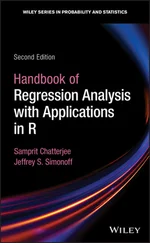“This was an extremely violent murder,” O’Connor said. “The defendant owns substantial property in Orinda as well as in Berkeley. We also know that prior to the homicide, Mrs. Polk had been living out of state.”
O’Connor argued that Susan had substantial financial assets at her disposal and was a flight risk, as well as a danger to the community—especially to her son, Gabriel, who discovered his father’s body in the guesthouse.
Turning to Theodore Bolling, Judge Mills inquired as to whether his daughter would be able to post bail in the next twenty-four hours.
“There is no chance, your honor,” Susan’s tall, dark-haired father replied.
Mills ordered that a bail hearing be scheduled along with the Friday afternoon arraignment.
The following afternoon, Susan was back in court with defense attorney William Osterhoudt by her side. Helen and David Bolling listened from the gallery as another judge, Merle Eaton, explained his decision to hold Susan without bail. He cited the letter Susan had written to juvenile judge, William Kolin, on behalf of her son Eli, noting that it contained threats to “sell her home” and “leave the state.”
Osterhoudt tried to argue that Felix’s death would make it difficult for his client to borrow money against their real estate holdings, but Judge Eaton was unmoved. He maintained that the letter introduced to the court by ADA O’Connor was convincing and set a hearing for 1:30 PM the following Wednesday to revisit the bail issue.
Ultimately, Susan chose not to keep Osterhoudt as her attorney, reportedly because of his association with her father. Though a public defender, Elizabeth Grossman, was later assigned to Susan’s case, she too would be dismissed by Susan. While Susan claimed that Grossman was not doing enough on her behalf, those close to the case suggested her dismissal occurred after Grossman pushed Susan to present an insanity defense at trial.
Regardless of who represented her, Susan faced twenty-five years to life in prison if convicted of Felix’s murder. Prosecutors would not seek the death penalty, but that decision did not make the defense any easier.
That afternoon, as Susan was being led from court in handcuffs, Detective Costa and his team were in Berkeley executing a search warrant at 3001 Dana Street, Felix Polk’s office. The building’s owner, Justin Simon, used a passkey to gain entry to the tastefully furnished space, complete with a working fireplace on one wall.
Mindful to avoid any patient mental health records, the investigators began their examination. They believed a review of Felix’s private records, documents, writings, and files pertaining to his treatment of his wife might reveal evidence of their marital problems, past abuse by either party, and any prior threats that might offer a motive in the case. Investigators noted a computer connection and computer mouse on the desk indicating that Dr. Polk used a laptop, but there was no machine in the office.
Leafing through a pile of papers on the desk, investigators came upon a fax copy of the court order granting Felix sole occupancy of the Miner Road residence and custody of Gabriel. There was also a copy of the minutes of the telephone conference that occurred on September 27, 2002, that resulted in the court order. Susan mentioned that call to Detective Costa at headquarters, claiming that during the conversation Felix informed her that he intended to hold a custody hearing in her absence.
Costa collected the documents, as well as other legal papers scattered on the desk. Among them was an unsigned contract granting a lien on the Miner Road residence in the sum of thirty thousand dollars from Felix’s portion of the proceeds to Felix’s divorce attorney, Steve Landes. There was also a letter from Landes asking that Felix bring his legal account current. Felix had not made a payment to his attorney in over eighteen months, and Landes was getting anxious. Costa, who had spoken to Landes on the phone earlier in the day, was familiar with the payment problems. According to Landes, Felix first retained him in April of 2001, but payments were always late for one reason or another. The Polks had just sold an apartment building in Piedmont and each had received $226,000 from the sale. While Dr. Polk had immediately invested his share in another property, the lawyer believed Susan still had her portion. Landes wasn’t aware of any physical violence between Felix and Susan. As far as he knew, Felix and Susan had been staying away from each other; although Felix had mentioned one incident that occurred before Landes came on board as counsel in which Susan kicked Felix in the back.
Landes last spoke to Felix by phone on October 11, the Friday before he was murdered. At the time, Felix was upset that Susan was refusing to vacate the Miner Road house. He claimed that police were unwilling to enforce the court order granting him sole occupancy of the residence and full custody of his teenage son. As with the other calls that Felix made in the days before his death, he expressed to Landes his fear that Susan might harm him. Landes advised Felix to “simply get away from there” because he was “so afraid of his wife,” Costa learned.
During the phone call with Costa, Landes made no mention of Felix’s grossly overdue legal bill or the lien he was proposing on the Miner Road residence. Police found two outstanding bills from Landes on Felix’s desk, along with a four-page letter dated September 23, 2002, outlining Landes’ work on the case and demanding payment:
In our last several conversations you have pointedly avoided the question I raised with you of fees. Last week you said something about a line of credit…and then nothing else. I simply can not run an account of this magnitude which, because of Susan’s unwillingness to settle on any issue, even the time of day, will probably become larger….
I will reiterate. You need to refresh your retainer immediately, within the week, by at least $10,000. This is a very reasonable request. You have not made a payment on your account for a year and a half. You have been billed. I know of no professional, whether therapist, attorney, dentist or doctor, who would run such a tab…. You made arrangements to refinance Miner Road without any consultation with me, paying off credit card bills for Susan without including my fees. I don’t feel that this is being unreasonable.
At Felix’s office, there were other indications that the Polks were in financial straits. Credit card statements found on the desk showed balances in excess of thirty-five thousand dollars. Landes’ letter to Felix indicated that Polk had used a portion of the money from a refinance of the Miner Road property to pay off those debts. However, there were no documents to substantiate that claim.
There was also a property assessment for the Arch Street apartment complex that the Polks co-owned with Susan’s mother, Helen Bolling, showing a value of $675,000 as of May 17, 1999. A typewritten letter found on the fireplace mantel from Susan to her mother, dated May 21, 2002, indicated that Helen had recently requested that Susan and Felix sign the property over to her:
Dear Mother,
…You seem to be claiming that your share has increased from 50% to 100% because you did not receive your share of the income for the last few years and proceeds from the refinance. In addition, you have written me out of your will.
It is not worth my while to waste any more time on this property when it does not benefit me….
Please have your attorney contact me…with a proposal for buying me out if you think that I am entitled to any share of the equity.
Sincerely,
Susan
Inside a yellow folder, marked “Divorce—Landes,” was a typewritten letter from Susan to Felix dated May 21, 2002. In the four-page, single-spaced document, Susan coherently made recommendations on what the divorcing couple should do with various properties, pets, and tax returns, as well as accounting and spousal support issues. Susan also used the letter to alert Felix that Gabriel’s “excessive absences” from Miramonte High School had resulted in his being “dropped from classes.”
Читать дальше











